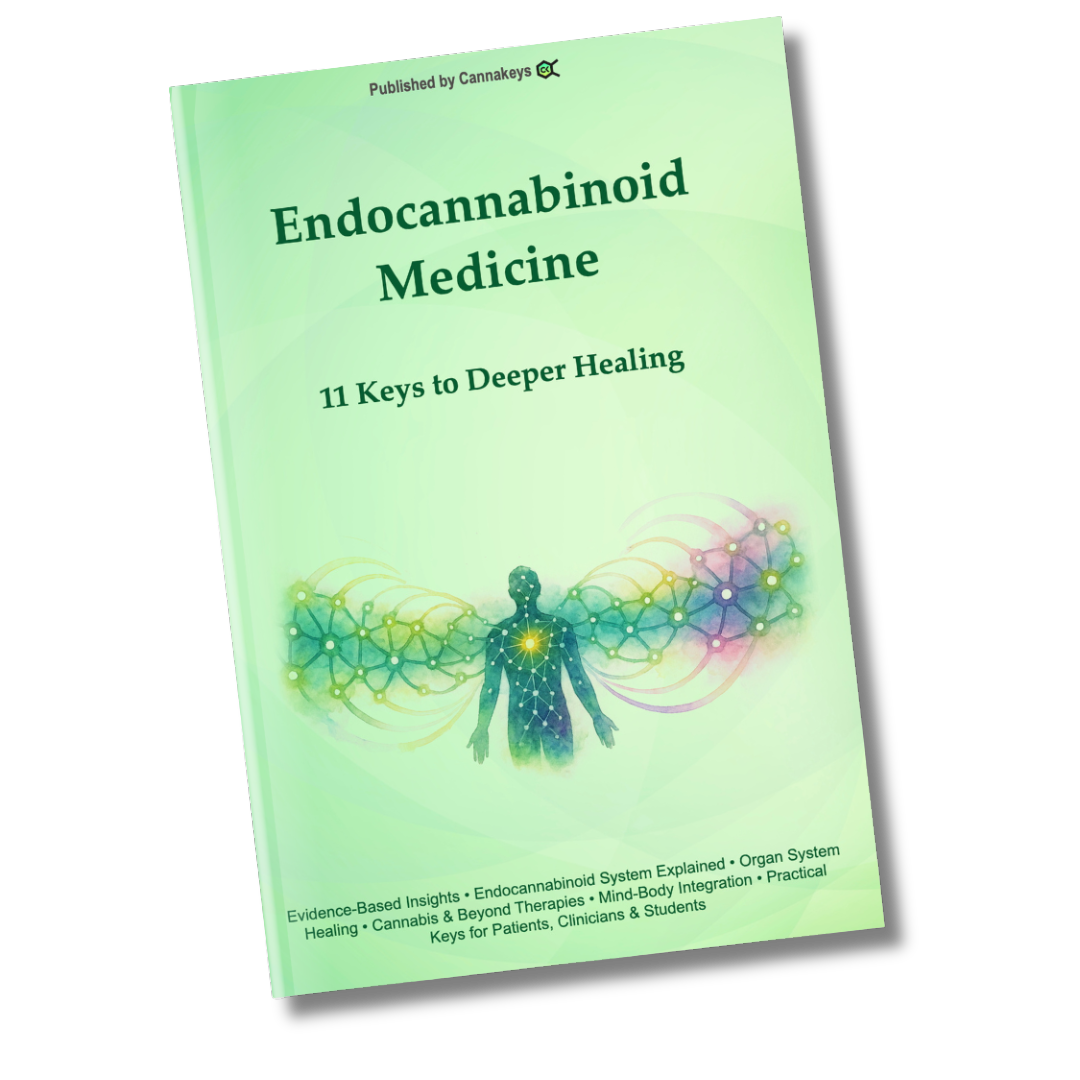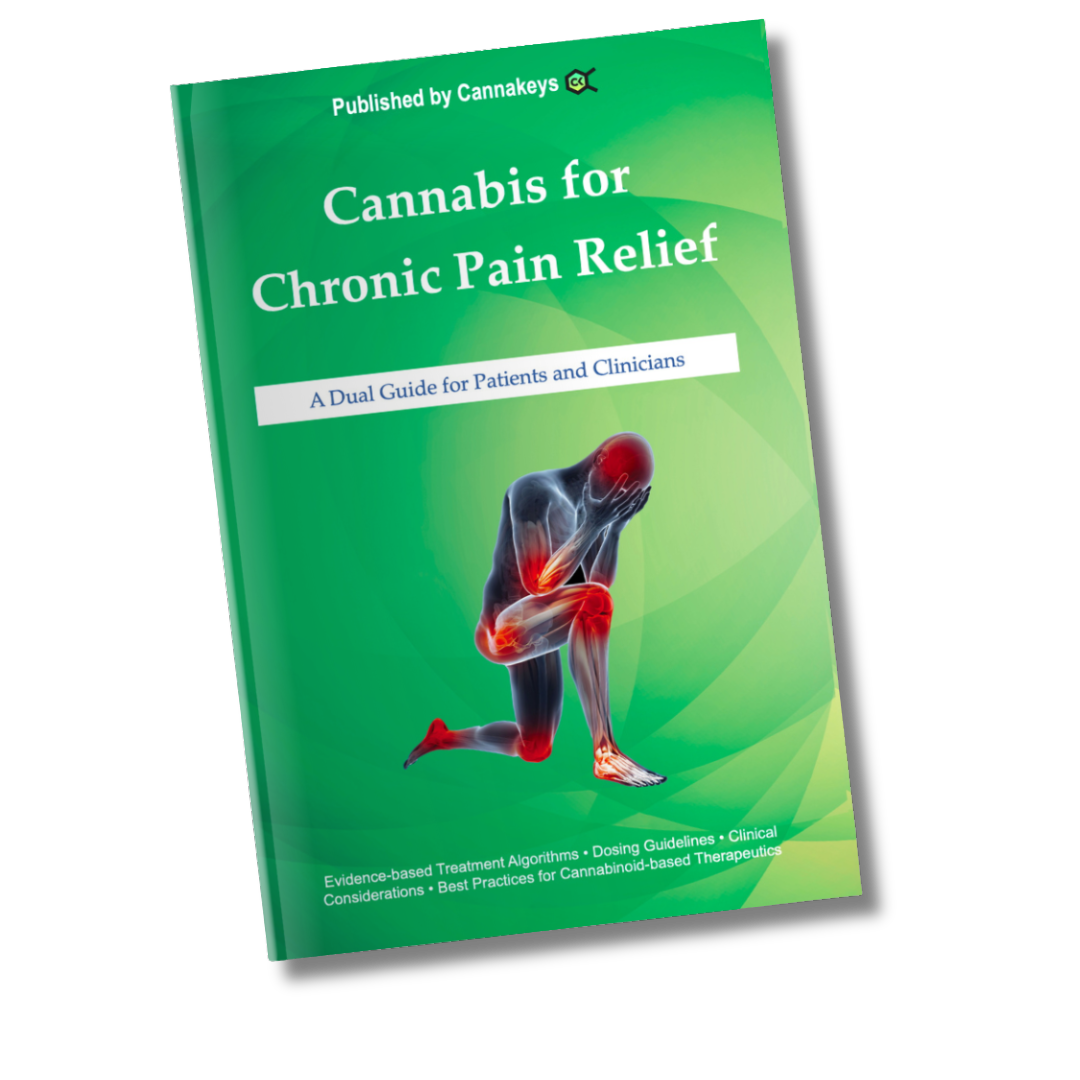Insomnia and Sleep Disorders Research Dashboard
What am I missing as a non-subscriber?
To see a full dashboard with study details and filtering, go to our DEMO page.
As a subscriber, you will be able to access dashboard insights including chemotype overviews and dosing summaries for medical conditions and organ system and receptor breakdowns for cannabinoid and terpene searches. Study lists present important guidance including dosing and chemotype information with the ability to drill down to the published material. And all outputs are fully filterable, to help find just the information you need. Stay up-to-date with the science of cannabis and the endocannabinoid system with CannaKeys.
CannaKeys has 428 studies associated with Insomnia and Sleep Disorders.
Here is a small sampling of Insomnia and Sleep Disorders studies by title:
- Effectiveness of a Cannabinoids Supplement on Sleep and Mood in Adults With Subthreshold Insomnia: A Randomized Double-Blind Placebo-Controlled Crossover Pilot Trial
- [Cannabidiol regulates circadian rhythm to improve sleep disorders following general anesthesia in rats]
- Efficacy of Cannabis Oil in Improving Subjective Sleep Quality in Systemic Sclerosis: A Prospective Placebo-Controlled Study
- Neonatal supplementation of oleamide during suckling ameliorates maternal postpartum sleep interruption-induced neural impairment and endocannabinoid dysfunction in early adolescent offspring rats
- Pep19: A Novel Approach for Reducing Visceral Fat and Improving Sleep Quality in Obese Adults-Results From an Early-Stage Clinical Trial
Ready to become a subscriber? Go to our PRICING page. Want to learn more about Endocannabinoid Medicine? Buy a book.

Endocannabinoid Medicine: 11 Keys to Deeper Healing
A clear, science-based guide to working with the endocannabinoid system for whole-body balance.
Buy Book
Cannabis for Chronic Pain Relief: A Dual Guide for Patients and Clinicians
A practical, evidence-based guide to using cannabis and cannabinoids for chronic pain.
Buy BookInsomnia and Sleep Disorders Research Dashboard
What am I missing as a non-subscriber?
To see a full dashboard with study details and filtering, go to our DEMO page.
As a subscriber, you will be able to access dashboard insights including chemotype overviews and dosing summaries for medical conditions and organ system and receptor breakdowns for cannabinoid and terpene searches. Study lists present important guidance including dosing and chemotype information with the ability to drill down to the published material. And all outputs are fully filterable, to help find just the information you need. Stay up-to-date with the science of cannabis and the endocannabinoid system with CannaKeys.
CannaKeys has 428 studies associated with Insomnia and Sleep Disorders.
Here is a small sampling of Insomnia and Sleep Disorders studies by title:
- Effectiveness of a Cannabinoids Supplement on Sleep and Mood in Adults With Subthreshold Insomnia: A Randomized Double-Blind Placebo-Controlled Crossover Pilot Trial
- [Cannabidiol regulates circadian rhythm to improve sleep disorders following general anesthesia in rats]
- Efficacy of Cannabis Oil in Improving Subjective Sleep Quality in Systemic Sclerosis: A Prospective Placebo-Controlled Study
- Neonatal supplementation of oleamide during suckling ameliorates maternal postpartum sleep interruption-induced neural impairment and endocannabinoid dysfunction in early adolescent offspring rats
- Pep19: A Novel Approach for Reducing Visceral Fat and Improving Sleep Quality in Obese Adults-Results From an Early-Stage Clinical Trial
Ready to become a subscriber? Go to our PRICING page. Want to learn more about Endocannabinoid Medicine? Buy a book.

Endocannabinoid Medicine: 11 Keys to Deeper Healing
A clear, science-based guide to working with the endocannabinoid system for whole-body balance.
Buy Book
Cannabis for Chronic Pain Relief: A Dual Guide for Patients and Clinicians
A practical, evidence-based guide to using cannabis and cannabinoids for chronic pain.
Buy BookSelect New Condition
Overview - Insomnia and Sleep Disorders
Description of Insomnia and Sleep Disorders
Insomnia is a common but complex sleep disorder often rooted in multiple overlapping causes, making it challenging to diagnose and treat effectively. Without identifying and addressing the underlying or maintaining factors, insomnia can persist as a chronic condition regardless of treatment.
Some triggers—such as poor sleep hygiene, uncomfortable bedding, rotating work shifts, exposure to electronic screens before bed, or noisy environments—are more easily identifiable and reversible. Others, like chronic stress, anxiety, and emotional distress, are more difficult to manage and may require structured interventions such as cognitive-behavioral therapy (CBT), sleep restriction protocols, or relaxation techniques including meditation, exercise, or yoga.
Medical comorbidities also play a significant role. Conditions like chronic pain, mood disorders (e.g., anxiety, depression, schizophrenia), cardiovascular or pulmonary diseases, and various prescription medications can either cause or exacerbate insomnia. Lifestyle habits—such as caffeine, alcohol, nicotine use, or late-night eating—further contribute to disrupted sleep patterns.
Conventional pharmaceutical treatments for insomnia—including benzodiazepines (e.g., diazepam), sedative-hypnotics (e.g., zolpidem), opioids (for comorbid pain), and certain antidepressants—are associated with significant risks, including dependence, tolerance, and adverse side effects. Natural remedies like melatonin are often used but must be timed correctly, as food intake can delay its absorption; taking melatonin 2+ hours after eating is generally recommended.
The consequences of unresolved insomnia extend beyond poor sleep. It impairs cognitive performance, emotional regulation, and immune function, while increasing the risk for serious health conditions such as hypertension, cardiovascular disease, obesity, diabetes, GERD, asthma, depression, anxiety, and certain cancers. It can also lead to daytime fatigue, irritability, mood instability, and, in severe cases, hallucinations or hormone imbalances.
Addressing insomnia requires a holistic approach that combines lifestyle modifications, medical evaluation, and when appropriate, integrative or pharmacological therapies—tailored to the individual’s unique physiological and psychological profile.
Disease Classification
Condition: Insomnia and Sleep DisordersDisease Family: Deficiency (Sleep) Disorder
Organ System: Nervous System
ICD-10 Chapter: Diseases of the Nervous System
ICD-10 Code: G47.0-G47.2
Insomnia and Sleep Disorders Symptoms:
Difficulty falling asleep, difficulty staying asleep, morning drowsiness, ruminating, generalized weakness, irritability, depression, stress, chronic or acute (temporary), elevated blood pressure, and cardiovascular disease.Also known as:
Insomnia, Hypersomnia, Circadian rhythm sleep disorders, Narcolepsy, Cataplexy, Parasomnia, Sleep related movement disorders, alcohol-related insomnia, drug-related insomnia, idiopathic insomnia, insomnia due to a mental disorder, insomnia not due to a substance or known physiologic condition, non-organic insomnia, primary insomnia, unspecified insomnia, insomnia disorder, insomnia disorder related to known organic Factor, specific insomnia disorder, recurrent insomnia disorder, organic insomnia, insomnia not otherwise specified, adjustment insomnia, transient insomnia, psychophysiologic insomnia, persistent organic insomnia, maintaining sleep disorder, initiating sleep disorder, persistent organic initiating or maintaining sleep disorder, persistent organic sleep disorder, non-organic initiating sleep disorder, non-organic maintaining sleep disorder, non-organic initiating persistent sleep disorder, non-organic maintaining persistent sleep disorder, behavioral insomnia of childhood, persistent insomnia, insomnia due to a medical condition, hyposomnia due to Medical disorder, hyposomnia due to medical illness, insomnia co-occurrent and due to a medical condition, insomnia due to Medical Factor, insomnia due to nocturnal my appointments, sleep disorder due to a medical condition, hyposomnia, hyposomnia with Associated medical condition, insomnia due to known physiological condition, hyposomnia due to mental disorder, hyposomnia due to mental disorders, hyposomnia due to mental illness, hyposomnia due to physiological disorder, insomnia disorder related to another mental disorder, insomnia due to mental disorder, insomnia due to Associated mental disorder, paradoxical insomnia, fatal familial insomnia, combined type behavioral insomnia of childhood, limit setting type behavioral insomnia of childhood, sleep deprivation, lack of adequate sleep, inadequate sleep hygiene, irregular sleep habits, unhealthy sleepwick schedule, bad sleep habitsDrug Interactions
THC Interaction with Pharmaceutical Drugs
- Tetrahydrocannabinol (THC) can enhance the effects of drugs that cause sedation and depress the central nervous system, such as benzodiazepines, barbiturates, and alcohol.
- THC is metabolized by an inhibitor of several enzymatic liver pathways referred to as cytochrome P450 (aka CYP450). There are more than 50 enzymes belonging to this enzyme family, several of which are responsible for the breakdown of common drugs such as antidepressants (e.g., amitriptyline, doxepin, fluvoxamine), antipsychotics (haloperidol, clozapine, Stelazine), beta-blockers (e.g., propranolol), bronchodilators (e.g., theophylline), or blood thinners (e.g., warfarin). Thus, patients taking these medication classes may find that THC increases the concentration and effects of these drugs and the impact duration.
- Clinical observation (not yet confirmed by clinical trials) suggests no likely interactions with other pharmaceuticals at a total daily dose of up to 20mg THC.
If you are interested in the interaction potential of specific pharmaceuticals with THC, consider visiting these free drug interaction checkers: Drugs.com or DrugBank Online.
CBD Interaction with Pharmaceutical Drugs
- Cannabidiol (CBD) may alter the action of metabolic enzymes (specific drug-transport mechanisms) and alter interactions with other drugs, some of which may produce therapeutic or adverse effects. For instance, CBD interacts with the enzyme cytochrome P450 3A4 and cytochrome P450 2C19, increasing the bioavailability of anti-epileptic drugs such as clobazam (a benzodiazepine). This makes it possible to achieve the same results at significantly lower dosages, reducing treatment costs and risks of adverse effects.
- Groups of drugs affected include anti-epileptics, psychiatric drugs, and drugs affecting metabolic enzymes.
- Clinical observations (not yet confirmed by clinical trials) suggest no likely interactions with other pharmaceuticals at a total daily dose of up to 100mg CBD.
If you are interested in the interaction potential of specific pharmaceuticals with CBD, consider visiting these free drug interaction checkers: Drugs.com or DrugBank Online.
THC/CBD Interaction with Pharmaceutical Drugs
In general, when using cannabinoid-based therapeutics that contain both THC and CBD consider the ratio between them and weigh the relevant information displayed in the individual THC and CBD Drug Interaction windows accordingly.
If you are interested in the interaction potential of specific pharmaceuticals with both primary cannabinoids and THC/CBD, consider visiting these free drug interaction checkers: Drugs.com or DrugBank Online.
Concerns about Cannabis and Cancer-related Immunotherapies:
Some recent clinical observational studies have suggested that the co-administration of cannabinoid-based therapeutics and immunotherapy or immune checkpoint inhibitors in the treatment of certain types of cancer has been associated with worse overall survival rates (T. Taha et al., 2019; A. Biedny et al., 2020; G. Bar-Sela et al., 2020).
However, other studies have suggested that the co-commitment use of immune checkpoint inhibitors and cannabis-induced no such deleterious effects. More specifically, one trial was conducted on animals resulting in data suggesting that cannabis did not negatively affect the properties of immune checkpoint inhibitors (B. Waissengrin et al., 2023). The same authors compared the previous study results with findings from a cohort of 201 patients with metastatic non-small cell lung cancer who received treatment with monotherapy pembrolizumab as a first-line treatment and adjunct cannabis to treat mainly pain and loss of appetite. Their time to tumor progression was 6.1 versus 5.6 months, and overall survival differed between 54.9 versus 23.6 months in cannabis-naïve patients and cannabis-using patients, respectively. However, while numerically different, the authors write that these differences were not statistically significant, leading them to suggest that “These data provide reassurance regarding the absence of a deleterious effect of cannabis in this clinical setting.”
Dosing Considerations
THC Dosage Considerations
- THC micro dose: 0.1 mg to 0.4 mg
- THC low dose: 0.5 mg to 5 mg
- THC medium dose: 6 mg to 20 mg
- THC high dose: 21 mg to 50+ mg
CBD Dosage Considerations
- CBD low dose: 0.4 mg to 19 mg
- CBD medium dose: 20 mg to 99 mg
- CBD high dose: 100 mg to 800+ mg (upper limits tested ~1,500mg)
Disclaimer
Information on this site is provided for informational purposes only and is not meant to substitute for the advice provided by your own licensed physician or other medical professional. You
should not use the information contained herein for diagnosing or treating a health problem or disease. If using a product, you should read carefully all product packaging. If you have or suspect that you have a
medical problem, promptly contact your health care provider.
Information on this site is based on scientific studies (human, animal, or in vitro), clinical experience, or traditional usage as cited in each article. The results reported may not necessarily occur in all individuals. For many of the conditions discussed, treatment with prescription or over-the-counter medication is also available. Consult your physician, nutritionally oriented health care practitioner, and/or pharmacist for any health problem and before using any supplements or before making any changes in prescribed medications.

